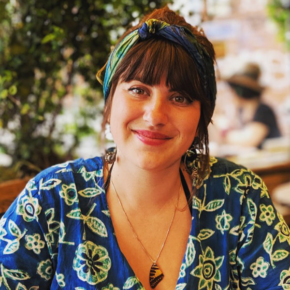In September 2017 I enrolled on Professional Writing Academy’s 8-week Therapeutic & Reflective Writing course, facilitated by Anne Taylor and Victoria Field. This was entirely unfamiliar territory for me and I had my initial reservations.
The first was that, as the youngest person on the course at 24, I wondered if I had enough life experience to validate my being there or if I had done enough soul searching to allow me to write in a reflective way about myself and my experiences.
In all honesty, I didn’t quite know what to expect. I’d never been part of an online community, and I confess that I feared not having someone physically in front of me or breathing down my neck regarding deadlines might result in a loss of motivation –— something I know all too well from university!
On a similar note, I also worried whether I would be able to both give sufficient support and feel supported when I wouldn’t be actually meeting my peers face-to-face.
Despite these hesitations, I knew it was something I needed to do. I was going through a rough time mentally, and I knew from sporadic poems and diary entries I’d written over the years that writing was a useful tool for me.
It acts as a catharsis that allows me to express myself and make sense of my world in a way I can’t elsewhere.
The idea of using creative writing for well-being was also something that grabbed my attention in a professional capacity.
I kept hearing stories about the efficacy of writing for well-being schemes and the enrichment they can provide for prisoners and those with mental health difficulties — the type of people I would one day like to work with.
Over these eight weeks, I found myself learning and writing in ways that were completely unfamiliar to me, yet allowed me to process and make sense of my experiences more effectively than I ever had through talking.
Creative pathways I had never utilised began to open up too — I was getting to know parts of myself through story weaving, poetry and the numerous other writing prompts set each week.
Before this, I had always experienced fiction and non-fiction as mutually exclusive when it came to my own writing.
To my surprise, a real sense of community grew between me and the other eight participants on the course; all of them from various parts of the world with diverse life experiences and professions, yet all holding a common belief in using writing as a tool for wellbeing in both a personal and professional context.
If this process has taught me anything, it’s that being part of an online group can be just as rewarding as ‘real life’ interaction.
– Laura Steen
I found myself looking forward to reading and responding to their work every week as well as receiving their well-thought-out and insightful feedback, and we would support each other when we struggled.
I was in an awful au-pair job at the time, so this became my escape. Writing and reading feedback really was keeping my head above rough waters – we lifted each other up whenever we could.
Being part of this course completely shifted the way I think about both online communities and online education.
Of course, communicating online can make us feel more distant from others, especially when it becomes a substitute for real human connection — a narrative we are all far too familiar with — but its effectiveness is overlooked, especially in cases such as this.
Sometimes it isn’t possible to find your perfect writing group — let alone attend one — for reasons that range from geographical constraints to personal.
However, if this has taught me anything, it’s that being part of an online group can be just as rewarding as ‘real life’ interaction.
I wouldn’t hesitate to recommend this course to anyone thinking about using therapeutic writing – be it for personal or professional reasons.
























